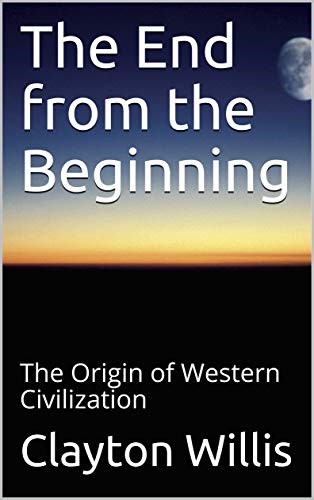The “Blind Spot” in History
In this part of the narrative, there is historical information not commonly known even among Bible scholars and ignored or overlooked by secular historians.
The information missing from the narratives of most Christian teachers and ignored or overlooked by secular historians is the direct result of our culture’s tendency to accept the traditional teaching that all Israelites are Jews.
As we discussed several times in Part I, at the end of King Solomon’s reign, there was an abiding separation of the Israelites into the Kingdom of Israel – 10 of the 12 tribes led by the tribe of Ephraim – and the Kingdom of Judah – the tribes of Judah, Benjamin and most of Levi. The former retained the name of Israel while the latter became known as Jews.
The unquestioning acceptance of traditional teaching on this matter is “hard set” in our culture. Today’s Christian teachers refer to the Jews being led out of Egyptian bondage by Moses; they refer to God’s giving the 10 Commandments to the Jews; throughout the Old Testament history, these teachers speak of Jews as if all the Israelites carried that name.
INSERT: Yet the Bible never refers to the nation of Israel as “Jews”. The first time the word “Jews” appears in the Bible, the nation of Israel was at war with the “Jews”.
When the Kingdom of Israel was destroyed, and 200,000 Israelites were taken captive by the Assyrian Empire and deported to the “cities of the Medes”, the traditional teaching proclaims that the Israelites either disappeared into the populations of the areas into which they were deported or returned to the Kingdom of Judah where they all became “Jews”.
This tradition is so ubiquitous that you find virtually no recognized major historians who even mention the fate of those deported Israelites; much less will you find any legitimate historical research by those historians. Instead, those who have attempted to provide that research have been marginalized and ridiculed or ignored by those same historians. Some of that ridicule and ignoring may be deserved! However, some of their work concerning the last two millennia should have been incorporated into our historical narrative.
The failure to do so has blinded otherwise astute Bible scholars and historians to the working of the hand of God over that period.
Chapter 9 of this book addresses that historical error directly by giving a synopsis of some of that work and the converse efforts to denigrate some truly significant historical writing.
The best illustration of the “blind spot” is that to my knowledge and ability to research, no one else has ever disclosed that it was the Israelites (not the Jews, who still mostly rejected Jesus as the Messiah) living in the Parthian Empire in the 1st Century AD who received the gospel of Jesus Christ from Peter and at least 4 other of the original apostles with open hearts and minds.
It was they who were a significant percentage of the Parthians who received the gospel in large numbers. The conversion of large numbers of the citizens of the Parthian Empire is confirmed both by the early church fathers like Eusebius and that age’s contemporary secular historians as well as historians closer to our age like George Rawlinson and even various encyclopedia historians of our time.
It was they, who were in the mixture of all the grand migration elements who
flooded Europe in the first millennium AD and who — in the middle of the second
millennium AD — took part in the Renaissance, the Enlightenment, the
social and scientific revolutions and who ultimately helped found Western
Civilization.
Yet their presence and their enormous effect on the development of our world
today has not been noted — or at least not mentioned — by any secular or
religious historian of whom I’m aware.
A giant blind spot, indeed!

